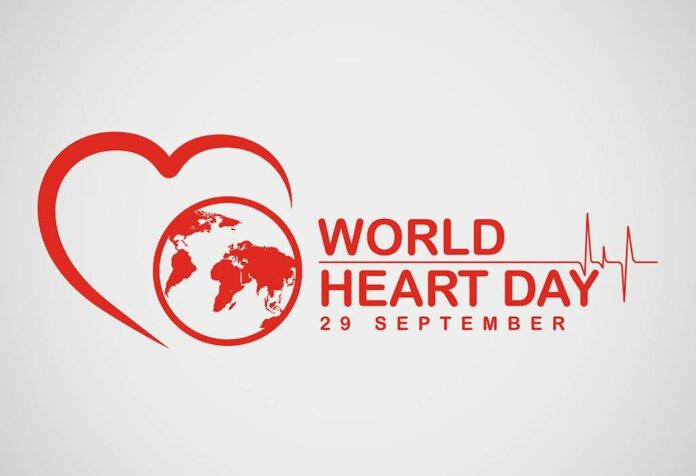Cardiovascular diseases are responsible for half the number of all non-communicable diseases and have the highest fatality rate. According to the World Health Organization, about 18 million people die due to cardiovascular conditions every year, accounting for 32 per cent of all deaths globally. These alarming numbers call for the need to maintain a healthy lifestyle in order to avoid situations that can lead to severe heart conditions. The leading causes of cardiovascular diseases are poor dietary practices, smoking and lack of adequate exercise. High blood pressure, cholesterol, and obesity are the most common health conditions which can lead to cardiovascular diseases.
Multiple conditions account for heart diseases like arrhythmia, aortic valve disease, congenital heart disease, coronary artery disease, pulmonary embolism, heart attacks, heart failures and cardiomyopathy. While many of them can be cured completely, or in some cases, partially, the duration of the treatment can vary, and the medical expenses could be quite high. For instance, open-heart surgery and Angioplasty in a private hospital in India can cost the patient up to INR 4 lakhs for the treatment alone. This makes buying health insurance critical. If these diseases are covered in the health insurance policy, one does not have to worry about the expenses arising out of long duration of medical treatments.
PICKING THE RIGHT POLICY
There are a host of health insurance plans in the market today. However, what an individual picks largely depends on their needs and the premium they can afford to shell out. Having said that, choosing a product that covers common medical conditions is imperative. Cardiovascular diseases fall under critical illnesses, and hence, it’s advisable to understand the cover and add-ons (if any) before opting for a health insurance product.
Health insurance with critical illness benefits can be of great advantage as most critical illnesses result in serious medical ailments and can affect an individual financially by burning a hole in their pocket. A critical illness plan can be bought as a standalone policy or as an add on. Another way to make sure you are insured against large medical bills is to buy a base cover with relatively higher sum insured but this could result in increased premiums. In some cases, critical illness cover is included in the base policy itself. In cases where individuals only have the employer group cover, employees can buy the critical illness cover at a small added cost.
FACTORS TO CONSIDER
While zeroing down on a policy, it’s important to be mindful about the services offered by the insurer. There are a few key things that one must consider.
• Customer servicing: The convenience of reaching the help desk, getting all questions answered, and hassle free settlement of claims are important elements of customer service. Always check the accessibility and turnaround time of the insurer.
• Network of hospitals: Cashless claims can make the life of the insured much easier. All that the insured needs to do is check the list of network hospitals for treatments, display the e-health card provided by the insurer and fill in the cashless claim request form. Once the form is submitted, the claim will be processed by the hospital and insurer without the requirement of any out-of-pocket payment.
Also Read: World Heart Day: Protect yourself from financial liabilities, buy an insurance cover today
• Digitized processes: Tech-enabled insurance players can offer a seamless customer journey right from buying a policy to getting a claim settled. Therefore, look for insurers that offer customer-friendly processes with the best-in-class tech solutions.
Along with the treatment and hospitalization costs, an individual’s health insurance must cover pre-hospitalization and post-hospitalization expenses. These include ambulance costs, diagnosis, medicines and so on. Such expenses can cause a serious dent in an individual’s income if they are not insured or the illness is not covered under their health insurance plan.
Unfortunately, serious illnesses such as heart attacks and heart valve complications are not uncommon. Conditions such as cancer, lung or liver failure, paralysis, organ transplant and neurological conditions, among others, also fall under the category of critical illnesses. These conditions, along with rising medical inflation, are driving the need for the right health insurance plan in addition to critical illness covers. In case of emergencies or in situations where an individual is dealing with a cash crunch, adequate health insurance along with a critical illness cover can ensure hassle-free treatment. Conditions such as cancer, lung or liver failure, paralysis, organ transplant and neurological conditions, among others also fall under the category of critical illnesses.
View expressed in this article are the personal opinion of Dr Sudha Reddy – HEAD – Health and Travel – Digit Insurance.
Elets The Banking and Finance Post Magazine has carved out a niche for itself in the crowded market with exclusive & unique content. Get in-depth insights on trend-setting innovations & transformation in the BFSI sector. Best offers for Print + Digital issues! Subscribe here➔ www.eletsonline.com/subscription/
















